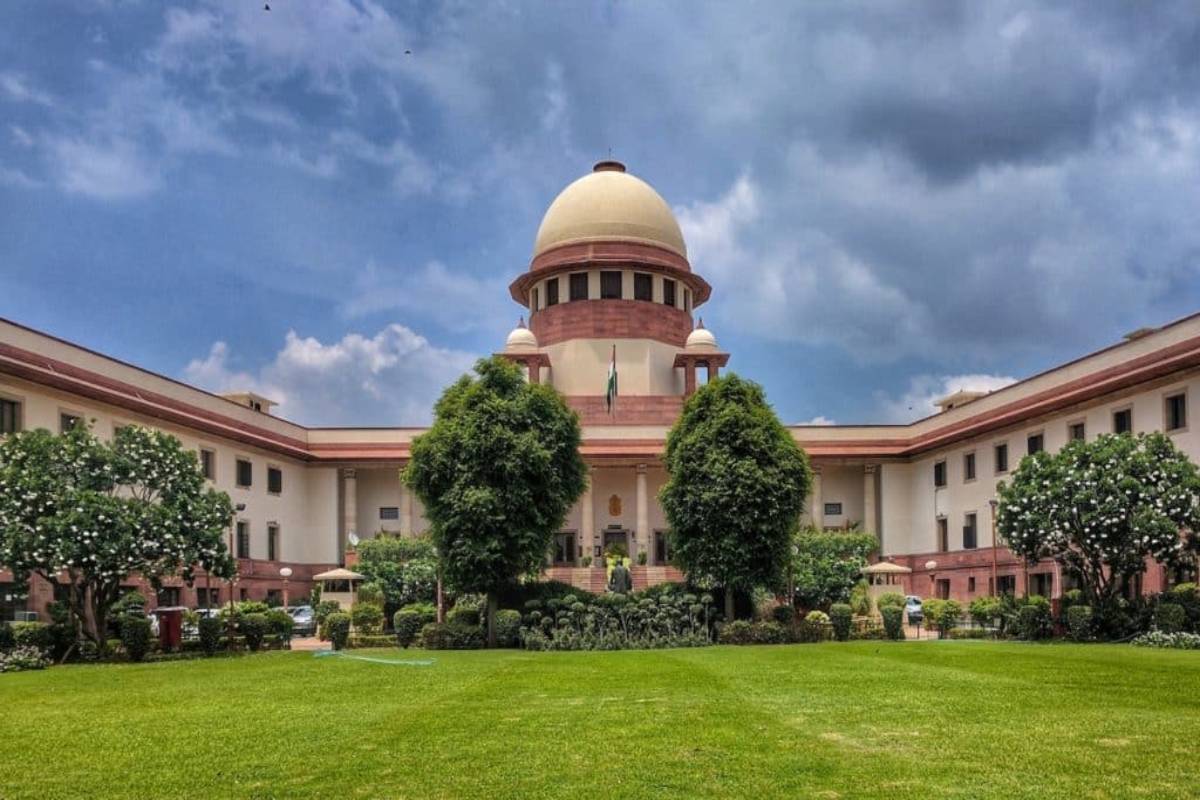India’s Got Latent: SC issues notice on YouTuber Ashish Chanchlani’s plea against FIRs
SC issues notice on YouTuber Ashish Chanchlani’s plea to quash or transfer FIR in India’s Got Latent case; tagged with Ranveer Allahabadia’s petition.
The Supreme Court was faced with an emotionally charged and ethically challenging case ~ whether or not to permit the abortion of a 27-week-old foetus that had surpassed the 24-week limit established by the Medical Termination of Pregnancy Act, 1971.

Supreme Court of India [Photo:SNS]
The Supreme Court was faced with an emotionally charged and ethically challenging case ~ whether or not to permit the abortion of a 27-week-old foetus that had surpassed the 24-week limit established by the Medical Termination of Pregnancy Act, 1971. The case involved a married couple who found themselves expecting a child for the third time, a pregnancy that was initially unbeknownst to the mother due to her postpartum infertility and depression. The court’s verdict on Monday, has sparked conversations about the intersection of law and compassion, personal choices and the rights of a viable foetus.
The Medical Termination of Pregnancy Act is a significant legal framework governing abortions in India. It permits abortions beyond 24 weeks only in specific situations such as when the foetus has abnormalities or when the pregnancy poses a risk to the mother’s life. In this case, the pregnancy did not fall under either of these categories, putting the court in a difficult position.
Advertisement
The decision to uphold the law might seem heartless to some, but it is crucial to understand the reasoning behind it. The law seeks to strike a balance between the rights and interests of the pregnant woman and the potential life she carries. By setting a 24-week limit, the law provides clarity and consistency, preventing arbitrary decisions and ensuring that abortions after this point are carried out for compelling reasons.
Advertisement
However, the emotional dimension of this case cannot be overlooked. The mother’s postpartum infertility and depression, combined with her unawareness of the pregnancy until later, made the situation sensitive. It is a stark reminder that individual circumstances can be incredibly complex and rigid legal limits may not always address these complexities adequately. The court, in its ruling, emphasised the viability of the foetus as a pivotal factor. The medical report indicated that the foetus could be born with a heartbeat if delivered at the present stage.
This raised the question of whether the Court should direct the doctors to stop the heartbeat, essentially ending a potentially viable life. The court’s decision to send the child’s delivery to the All India Institute of Medical Sciences (AIIMS) and offer the option of adoption to the parents is an acknowledgment of the difficulties involved. In assessing this case, it is essential to recognise that it highlights a need for introspection about India’s abortion laws.
The legal framework, despite its intentions, can sometimes feel inflexible and out of touch with the nuances of real-life situations. This case raises the question of whether there should be more allowances in the law for unique and challenging circumstances, such as postpartum depression, that may affect a woman’s decision-making process.
However, the issue is far from black and white. The law, while not perfect, offers consistency and a framework to navigate, challenging moral and ethical dilemmas. Striking a balance between personal choice, medical considerations and legal frameworks is complex, but it is what the Supreme Court, in this case, had to grapple with. There are no rights and wrongs in such choices.
Advertisement